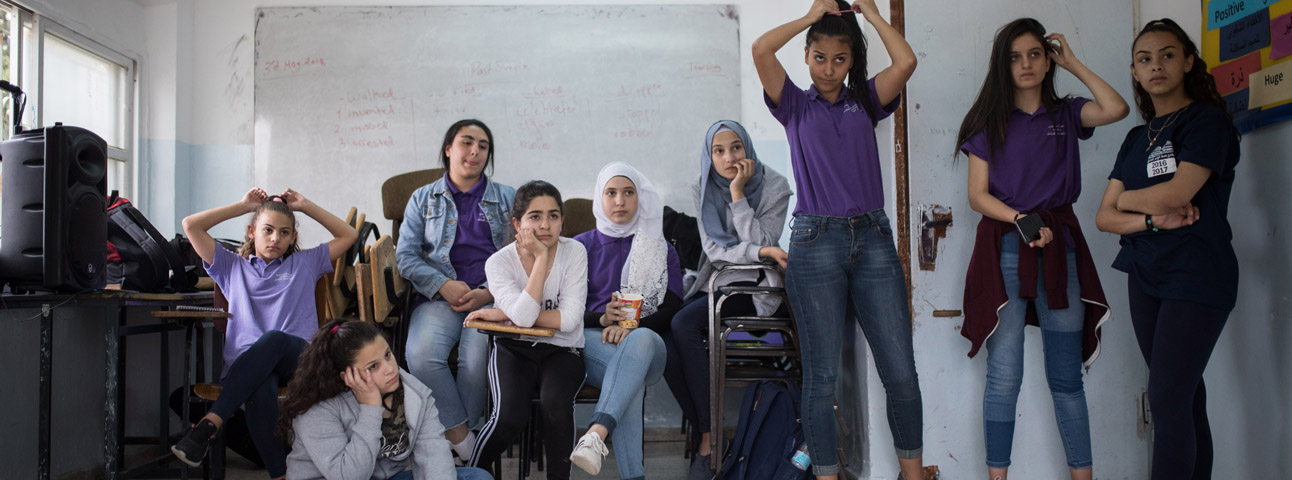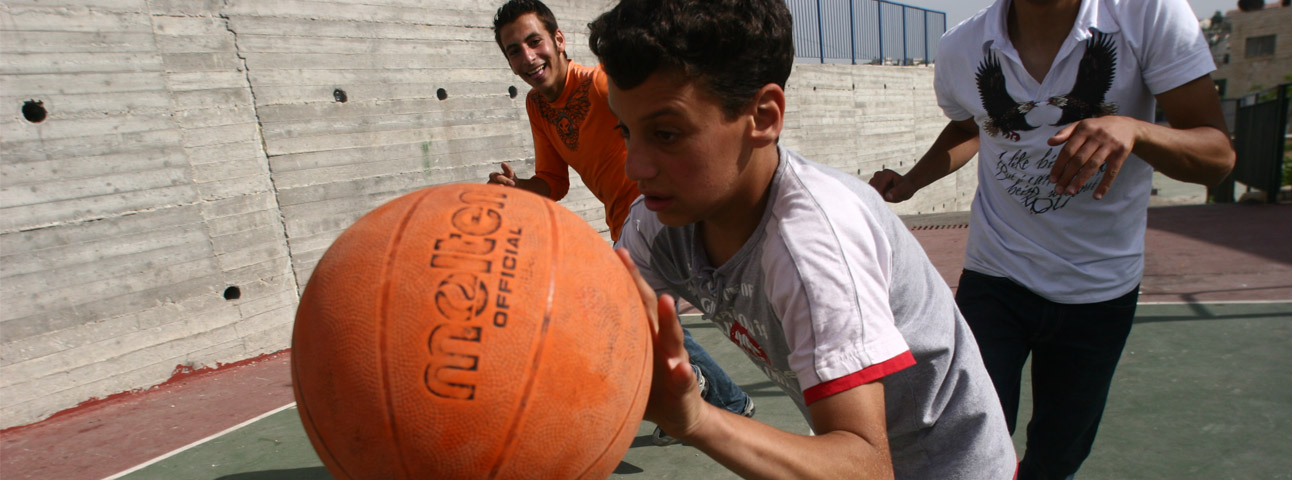To Help Arabs Integrate, Israel Should Help Strengthen Arab Identity – Study
In order to increase Arab participation in the country’s social and economic life, Israel’s non-formal education programs for its Arab communities should focus more on discussions about identity and belonging, a new report says.

Illustration | Flash 90
The report, written by researchers from independent research center Israel Democracy Institute, assesses the impact of a reform rolled out by the Israeli government to emphasize non-formal education as a key way to boost Arab education, welfare and integration into society.
Non-formal education is defined as those hours spent in extracurricular activities: after-school activities, youth movements. classes in community centers, even time spent with family and friends.
“Non-formal education is an alternative to too many free hours, which children otherwise would spend with too much internet or roaming the streets, which leads to an exposure to risky behaviors such as violence and drugs,” said Arik Rudnitzky, an IDI researcher and one of the two authors of the report.
In 2015, the Israeli government passed Resolution 922, a five-year economic development plan for Arab communities for 2016-2020, which has been hailed as a landmark in government policy vis-a-vis Arab Israelis. As part of the plan, the government has set out a budget of NIS 650 million ($182 million) to boost non-formal education in Arab society.
“It is a historic step,” said Rudnitzky, in a phone interview, of the funding for non-formal education.
Israel is making a push to lower poverty levels in the Arab sector and pave the way for better integration into its economy at a time when its high-tech sector is facing a shortage of skilled engineers and programmers. International comparisons have shown that when non-formal education programs are tailored to the cultural and social needs of their target audience they are particularly effective in lowering crime rates and improving academic achievements and better integration into society, the researchers said.
Together with fellow researcher Nasreen Hadad Haj-Yahya, director of the Arab-Jewish Relations Program at the IDI, the team set out to study the impact the reform was having on non- formal education, two years into the program.
“I am a mother of three girls, and it was important for me to see how the program of allocation of funds is progressing and the impact it is having,” said Hadad Haj-Yahya.
The researchers found that the program was having a positive impact, with Education Ministry figures showing there is a rise in Arab pupils joining these non-formal education programs in the Arab sector.
Out of a total 490,000 Arab children ages 5 to 18, some 18% to 20% are in non-formal educational programs, since the start of the funding, said Rudnitzky. “This used to be 10%, so the jump is significant,” he said. In addition, the 922 five-year plan intends to raise the number of community centers in Arab localities from 32 to 54 by 2020.

Illustration | Flash 90
But more needs to be done to better tailor the programs to the populations it is aiming to serve, the researchers said, while at the same time bring to the surface issues such as Arab identity and Arab narratives that are not addressed by the formal educational system.
“What we are saying in our study is that these programs need to be set up specifically to the needs of Arab children,” said Rudnitzky. “You cannot take programs initially designed for Jewish children and use them for Arab children. The needs are very different.”
In addition, the programs should also consider that within the Arab population there are differences; programs targeted to secular Arabs may not be suitable for religious Arabs, Bedouin or Druze. The population’s “internal diversity should be taken into consideration,” said Haj-Yahya.
Equal citizens, but no collective rights?
The programs “must also address issues like belonging — what does it mean to be an Arab in a predominantly Jewish society and how can you create social solidarity with the state? What does it mean to be an Arab citizen in Israel?” said Rudnitzky.
The lauded Resolution 922 was followed by the Nation State Law, passed by the Knesset in July, which for the first time enshrines Israel as “the national home of the Jewish people,” and says “the right to exercise national self-determination in the State of Israel is unique to the Jewish people.” It also defines Arabic as a language bearing a “special” status, effectively downgrading it from its de facto status as Israel’s second official language.
The government has argued the new law merely anchors the country’s existing character, and that Israel’s democratic nature and provisions for equality are already rooted in existing constitutional legislation. But critics, both at home and abroad, say it undermines Israel’s commitment to equality for all its citizens outlined in the Declaration of Independence.
“There is a dichotomy in Israel regarding its approach to its Arab population,” said Rudnitzky in the interview. “On the one hand it wants to integrate them more into the economy of Israel – but how can they then explain the passing of the Nation State Law? The message Israel is sending is that you can be equal citizens but you are not able to have collective rights as a group within Israel. These rights are given only to Jews.”
Collective rights allow populations to have autonomy on such subjects as education, culture, heritage and language.
“I cannot agree with any law that defines me as a second-class citizen,” Haj-Yahya said. “One of our recommendations is to accept the fact that we must agree to disagree. We don’t see eye to eye, but today the state is afraid to deal with issues of identity and belonging, when it relates to its Arab population. To study music and sports is great, but it is more important that students learn who they are and how they are connected to the state and what is expected of them and what they can expect in return.”
“This is something that is not going to disappear, and the state needs to learn to talk about these issues and deal with them — even if there are and can be disagreements — to support the integration of the Arab population. People who have a developed national identity have a better chance to integrate economically and socially,” she said.
The article first appeared in Times of Israel.
